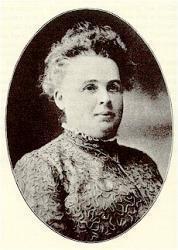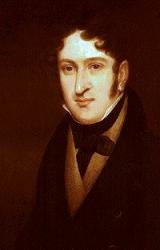Planning worship?
Check out our sister site, ZeteoSearch.org,
for 20+ additional resources related to your search.
- |
User Links
Person Results
‹ Return to hymnal




Export as CSV
Jean-Jacques Rousseau

1712 - 1778 Person Name: Jean Rousseau Hymnal Number: 250 Composer of "GREENVILLE" in International Praise Jean Jacques Rousseau; b. 1712, Geneva; d. 1778, Paris. Born in the city-state of Geneva in the Swiss Confederacy, his mother died whenhe was 9 days old. Rousseau's father was a watchmaker, but got into trouble with local officials and left the town, leaving his son with an uncle who had Rousseau and his own son board with a Calvinist minister for 2 years. He was later apprenticed to a notary and then to an engraver, who beat him. He ran away from Geneva at 16. In nearby Savoy, he sheltered with a Roman Catholic priest. He was sent to Italy to convert to Catholicism. He supported himself as a servant, secretary, and tutor. His life was filled with personal and political upheaval, and his writings infuriated many, to the point he had to leave several habitations. He had many friends and enemies due to his philosophies on life, religion, and God. He was concerned with decay of society (having experienced the French Revolution) and became a philosopher, writer, botanist, and composer, he influenced the Enlightenment period through his political philosophy, both in France and across Europe, including aspects of the French Revolution and overall development of modern political and educational thought. A member of the Jacobin Club, he was the most popular of philosophers. He believed that self-preservation was the highest virtue and that we should study to understand how society operates and where pitfalls lie. His personal family life was very chaotic as a result of his outspoken opinions and writings. He returned to his Calvinistic beliefs in later life, but digressed from them on several issues important to that church.
John Perry
Jean-Jacques Rousseau
A. Ewing
1830 - 1895 Hymnal Number: 235 Composer of "EWING" in International Praise Alexander C (Rex) Ewing United Kingdom 1830-1895. Born at Aberdeen,Scotland, he studied music and German at Heidelberg University and law in Aberdeen. However, he did not qualify as a lawyer. A member of the Aberdeen Harmonic Choir and the Hadyn Society of Aberdeen, he was regarded as the most talented young musician in the city. He became an author, musician, editor, composer, and translator. He married Juliana Horatia Gatty in 1867. She died in 1885, and he remarried Elizabeth Margaret Cumby in 1886. He was a career officer in the British Army's Commissariat Department and subsequently the Army Pay Corps. He served at Constantinople during the Crimean War, thereafter in China for six years, then in Ireland during the Fenian Uprising. He was then in New Brunswick just after England created the British North American Act, creating the Dominion of Canada. He then went to Fredericton, where he played the organ and sang at Christ Church Cathedral. He was transferred to Aldershot. In 1879 he went to Malta, then served in Ceylon before returning to England. He reached the rank of Lt. Col. He translated several works by other authors. He retired and spent the last six years of his life in Taunton, England, where he died.
John Perry
A. Ewing
John Wyeth
1770 - 1858 Hymnal Number: 249 Composer of "NETTLETON" in International Praise
John Wyeth
Ignaz Pleyel
1757 - 1831 Person Name: Ignace Pleyel Hymnal Number: 170 Composer of "PLEYELS HYMN" in International Praise Ignaz Joseph Pleyel; b. Ruppertstahl, near Vienna, 1757; d. Parice France, 1831
Evangelical Lutheran Hymnal, 1908
Ignaz Pleyel
E. T. Cassel
1849 - 1930 Person Name: Dr. E. T. Cassel Hymnal Number: 90 Author of "The King's Business" in International Praise
E. T. Cassel
Rudyard Kipling

1865 - 1936 Hymnal Number: 306 Author of "God of Our Fathers" in International Praise Born: December 30, 1865, Bombay (now Mumbai), India.
Died: January 18, 1936, London, England.
Buried: Westminster Abbey, London, England.
Kipling, Rudyard, the well-known poet and story-teller, was born at Bombay, India, Dec. 30, 1865, and now (1906) lives at Burwash in Sussex. His noble poem, "The Recessional," was written in 1897 at the time of the Diamond Jubilee of Queen Victoria, contributed to the Times for July 17, 1897, and first published by the author in his The Five Nations, 1903, p. 214, beginning "God of our fathers, known of old" (National). It has passed into Sursum Corda, Phil., 1898, The English Hymnal, 1906. [Rev. James Mearns, M.A.]
--John Julian, Dictionary of Hymnology, New Supplement (1907)
Rudyard Kipling
Nellie Talbot
Hymnal Number: 146 Author of "I'll Be a Sunbeam" in International Praise
Nellie Talbot
Guillaume Franc
1500 - 1570 Person Name: G. Franc Hymnal Number: 270 Composer of "OLD HUNDRED" in International Praise
Guillaume Franc
Flora H. Cassel

1852 - 1911 Hymnal Number: 90 Composer of "[I am a stranger here, within a foreign land]" in International Praise
Flora H. Cassel
Henry R. Bishop

1786 - 1855 Person Name: H. R. Bishop Hymnal Number: 305 Composer of "['Mid pleasures and palaces tho' we may roam]" in International Praise Bishop, Henry Rowley, was born at London, Nov. 18, 1786, and died at London, April 30, 1855. See a full notice in the Dictionary of Nat. Biog., v., 91. From 1840 he was occasional and from 1843 to 1848 sole conductor of the Antient Concerts. Of his Twelve Corales...as sung at the Concerts of Ancient Music, for which (with Words expressly written to them) they were adapted and arranged by Sir Henry R. Bishop, 1844 (B. M. copy is H. 878), some are fairly literal translations from the German, others have no connection with their nominal originals. Three were noted in this Dictionary, but their source not having been traced in 1892, we now subjoin them:—
1. Behold, how glorious is yon sky, p. 127, ii. This is from "Wie herrlich ist die neue Welt" in C. H. Graun's oratorio Der Tod Jesu, 1756 (B. M. copy, 11. 1805, catalogued as 1766), the words being by Karl Wilhelm Ramler, b. Feb. 25, 1725, at Colberg, in Pomerania; 1748, Professor of Literature at the Cadet School in Berlin; d. at Berlin, April 11, 1798.
2. God is our Refuge in distress, Our Shield, p. 325, i.
3. O let us praise the Lord, With hearts of true devotion, p. 963, ii., No. 4. The Winchester Hymn Book, 1857, alters stanza i., the original line 1. 3, 4 being:—
"Whose spirit roams abroad,
To calm life's troubled ocean."
Another fairly close version is,"Wake, O wake! a voice is crying," from "Wachet auf," p. 805, ii. [Rev. James Mearns, M.A.]
--John Julian, Dictionary of Hymnology, New Supplement (1907)
Henry R. Bishop


 My Starred Hymns
My Starred Hymns


